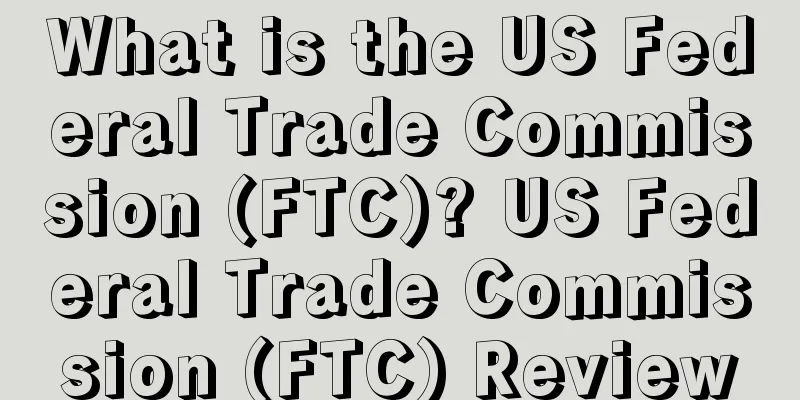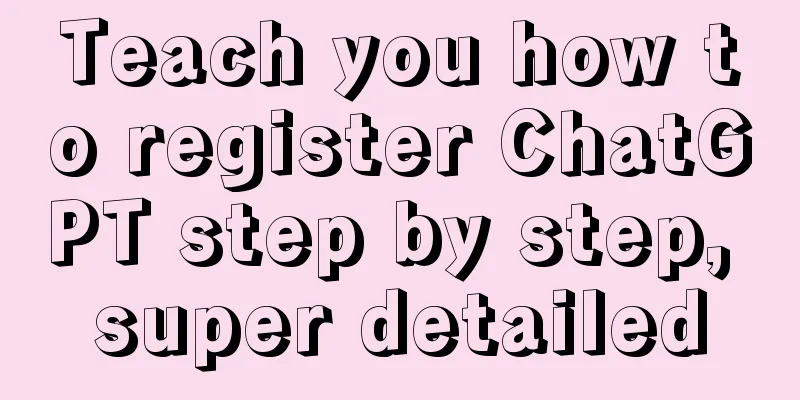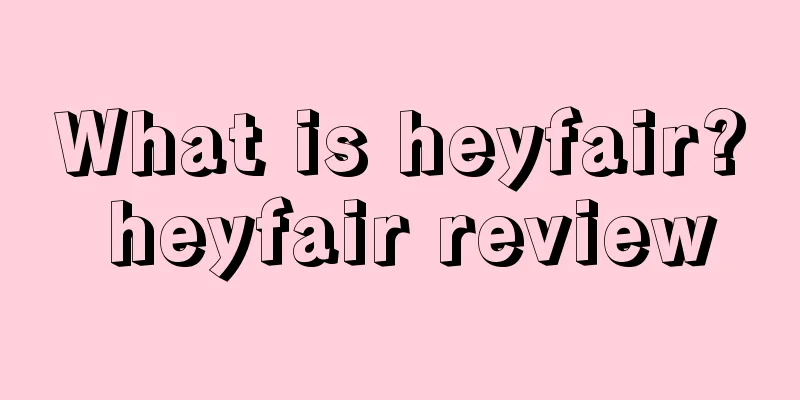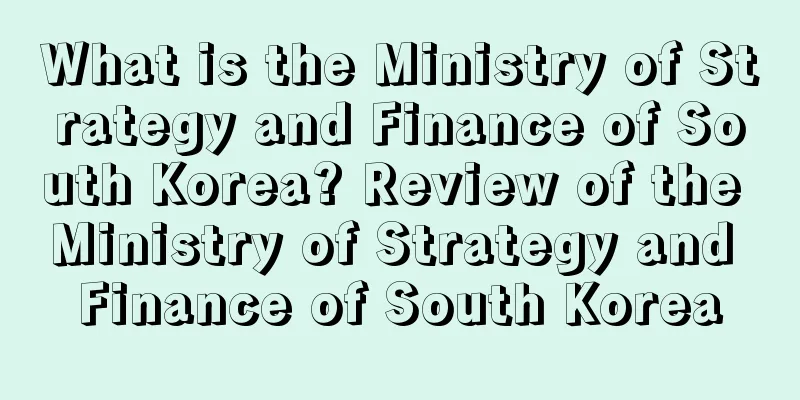What is the US Federal Trade Commission (FTC)? US Federal Trade Commission (FTC) Review

|
The Federal Trade Commission (FTC) is an independent agency of the U.S. government established in 1914. Address: 600 Pennsylvania Avenue, NW Washington, DC 20580 Established: September 26, 1914 Official website : www.ftc.gov The Federal Trade Commission is a federal agency that enforces a variety of antitrust and consumer protection laws. Its purpose is to ensure that the nation's markets are competitive, prosperous, and efficient, without unreasonable constraints. The FTC also ensures and promotes the smooth operation of the marketplace by eliminating unreasonable and deceptive rules or regulations. Since its inception, the FTC has enforced the Clayton Act, a key piece of competition law, and the Federal Trade Commission Act, 15 U.S.C. Chapter 41. Over time, the FTC has been empowered to enforce other business regulations and has promulgated a range of regulations. Legislative progress In light of the Supreme Court's 1911 decisions against Standard Oil and American Tobacco, Oklahoma Congressman Dick Thompson Morgan introduced an initial bill to establish a regulation of interstate commerce on January 25, 1912. He presented his proposal in the House of Representatives on February 21, 1912. Although the initial bill did not pass, trust and antitrust issues dominated the 1912 election. Most political parties in 1912 favored the creation of a Federal Trade Commission with regulatory powers in the hands of an administrative commission as an alternative to the previous slow process that had to be carried out through the courts. With the 1912 presidential election decided in favor of the Democrats and Woodrow Wilson, Morgan reintroduced a slightly modified version of his bill during a special session in April 1913. The climax of the national debate was Wilson's signing of the Federal Trade Commission Act on September 26, while additional tightening of regulations under the Clayton Antitrust Act three weeks later. The new FTC would absorb the staff and responsibilities of the Bureau of Corporations, which had been established in 1903 on the Department of Commerce and Labor. The FTC could also investigate "unfair methods of competition" and more specifically prohibit certain price discrimination, vertical arrangements, interlocking directors, and stock acquisitions as per the Clayton Act. In 1938, the Wheeler-Leigh Act amended Section 5 of the Federal Trade Commission Act, stipulating that in addition to unfair competition methods, unfair or deceptive behavior is also illegal. The purpose of this amendment is to expand the scope of application of the law to those commercial practices that directly harm the interests of consumers; the Saylor-Kefauver Act of 1950 and the Antitrust Procedure Improvement Act of 1980 amended Section 7 of the Federal Trade Commission Act. In addition, the laws and measures during the Roosevelt "New Deal" period also enriched the theory and practice of antitrust law. In the long-term judicial practice, the theory and practice of the US antitrust law have been continuously improved, and the antitrust law has become a powerful means to implement the government's economic policies and protect the normal operation of the economy. Job Responsibilities The Federal Trade Commission's work is primarily to prevent behavior that may harm consumers. When Congress, the executive branch, or other independent agencies, as well as state and local governments need to discuss policy, the Commission will provide relevant information. The FTC can conduct investigations in different ways. Letters from consumers, requests from businesses or Congress, or articles about consumer and economic issues may lead the FTC to take action. Such investigations can be public or private, but generally speaking, FTC investigations are kept private to protect the company and the investigation itself. department Consumer Protection Bureau The Bureau of Consumer Protection's mission is to protect consumers from unfair or deceptive acts or practices in commerce. With the Commission's written approval, the Bureau's attorneys enforce federal laws and regulations promulgated by the Federal Trade Commission relating to consumer affairs. Its functions include investigations, enforcement actions, and consumer and business education. The Bureau's primary areas of focus are: advertising and marketing, financial products and practices, telephone fraud, and privacy and identity protection. The Bureau is also responsible for the U.S. Do Not Call Program. Under the FTC Act, the Commission has the authority, in most cases, to use its own attorneys to promote actions it files in federal court. In some consumer protection matters, the U.S. Department of Justice appears or supports the FTC. Competition Bureau The Bureau of Competition is a division of the U.S. Federal Trade Commission that is charged with eliminating and preventing "anticompetitive" business practices. It does this by enforcing competition laws, reviewing merger proposals, and investigating other non-merger business practices that may harm competition. Such non-merger practices include horizontal restraints, which involve agreements with direct competitors, and vertical restraints, which involve agreements between businesses at different levels of the same industry (such as suppliers and business buyers). The FTC shares enforcement of the antitrust laws with the DOJ. However, while the FTC is responsible for civil enforcement of the antitrust laws, the DOJ's Antitrust Division has the authority to bring civil or criminal actions in antitrust matters. Economic Bureau The Bureau of Economics was established to support the Bureau of Competition and Consumer Protection by providing expert knowledge on the economic effects of FTC legislation and operations. Federal Trade Commission Activities The FTC advances its mission by investigating consumer and business reports, pre-merger complaints, congressional investigations, and issues raised in the popular media. These issues include: false product labeling and other forms of fraud. FTC investigations may involve a single company or an entire industry. If the investigation results in illegal conduct, the FTC may seek voluntary compliance from the violating business through the following means: consent orders, filing administrative complaints, and initiating federal lawsuits. Administrative complaints are traditionally filed before an independent Administrative Law Judge (ALJ) with FTC staff acting as prosecutors. The case is reviewed "de novo" by the full FTC and can then be appealed to the U.S. federal courts of appeals and, ultimately, the U.S. Supreme Court. Under the FTC Act, federal courts retain their traditional authority to issue equitable relief, including the appointment of receivers, monitors, asset freezes to prevent the waste of funds, immediate access to business premises to preserve evidence, and other relief, including financial disclosure and expedited discovery. In many cases, the FTC uses this power to combat serious consumer deception or fraud. In addition, the FTC has rulemaking authority to address widespread industry practices that are of concern. Rules issued under this authority are called "trade rules." In the mid-1990s, the FTC introduced the concept of fraud sweeps, in which the agency and its federal, state, and local partners simultaneously pursued legal actions against multiple telephone fraud targets. The first sweep, Project Telesweep, dismantled 100 business opportunity scams by July 1995. In 1984, the FTC began regulating funeral homes to protect consumers from deceptive practices. The FTC's Funeral Rule requires funeral homes to provide all customers (and potential customers) with a General Price List that specifically identifies goods and services in the funeral industry as defined by the FTC, and lists their prices. Under the law, the General Price List must be made available to all individuals who request it, and a written, retainable copy of the General Price List may not be withheld. In 1996, the FTC established the Funeral Rule Offenders Program (FROP), under which "funeral homes make voluntary payments to the U.S. Treasury or appropriate state funds in amounts less than the amount that the Commission may authorize to bring a civil penalty action. In addition, funeral homes participate in the NFDA Compliance Program, which includes review of price lists, on-site training of staff, and subsequent testing and certification of compliance with the Funeral Rule." Another major focus of the Federal Trade Commission is identity theft. The FTC provides a federal repository for individual consumer complaints of identity theft. While the FTC does not resolve individual complaints, it does use aggregated information to determine possible actions the federal government may take. Complaint forms may be filed online or by phone (1-877-ID-THEFT). The FTC has been involved in the online advertising industry and has overseen behavioral targeting practices at some point in time. In 2011, the FTC proposed a “Do Not Track” mechanism to allow Internet users to opt out of behavioral targeting. In 2013, the FTC released its overhauled Green Guidelines, which set out standards for environmental marketing. The FTC imposes civil penalties on companies that violate reporting requirements, whether willfully or not. Warren Buffett's Berkshire Hathaway agreed in August 2014 to an $856,000 civil penalty for failing to pre-report a convertible bond transaction in December 2013. The FTC called the violation an "inadvertent error" in a statement. Unfair or deceptive practices affecting consumers Section 5 of the Federal Trade Commission Act, 15 U.S.C. Chapter 45, gives the FTC the power to investigate and prevent deceptive trade practices. The statute states: "Unfair practices in commerce that unfairly compete with or affect commerce, and acts or practices that are unfair or deceptive, or that are declared unlawful to affect commerce." Unfairness to consumers and deception are two different areas of FTC enforcement and authority. The FTC also has the power to investigate unfair methods of competition between businesses. |
<<: What is Zhehui International? Zhehui International Review
>>: What is Cotopaxi? Cotopaxi Review
Recommend
What is vanonbatteries? vanonbatteries review
vanonbatteries is a professional battery manufactu...
Teach you how to register ChatGPT step by step, super detailed
If you need information and services, please add ...
What is ASOS? ASOS Review
ASOS (AsSeenOnScreen) is a global online retailer ...
Amazon is ambitious in Europe! Will it be the first time for Amazon to open an Irish site?
Last week, Amazon officially announced that the Po...
Want to make some quick money? Start by choosing the right popular product on Amazon!
text The four core elements of e-commerce are: pr...
Canada Post opens community service center to expand logistics network coverage!
According to foreign media reports, Canada Post re...
North American pet e-commerce giant Worldwise acquires its competitor FurHaven!
It is learned that according to foreign media repo...
What is Sezzle? Sezzle Review
Sezzle is a payment solution that breaks purchases...
What is Umeng Cross-border? Umeng Cross-border Review
Umeng Cross-border has independently developed a &...
What is Tiantuo Haihui? Tiantuo Haihui Review
Guangdong Tiantuo Haihui Technology Co., Ltd., for...
The latest online shopping trends among American consumers! 96% of people value free shipping!
<span data-shimo-docs="[[20,"获悉,据报道,近日Adta...
Practice | 6 ways to expand your Amazon keywords
Next, we can add a minimum search volume of 400, a...
How to calculate the best storage configuration fee? It may be more cost-effective to store small and light products in 4 or more pieces?
Positive My C position Recently, the warehouse con...
More than 100 children have suffocated to death! These two baby rocking beds are urgently recalled!
It is learned that according to foreign media rep...
What is Sanhang Technology? Sanhang Technology Review
Sanhang Technology is a company specializing in on...









